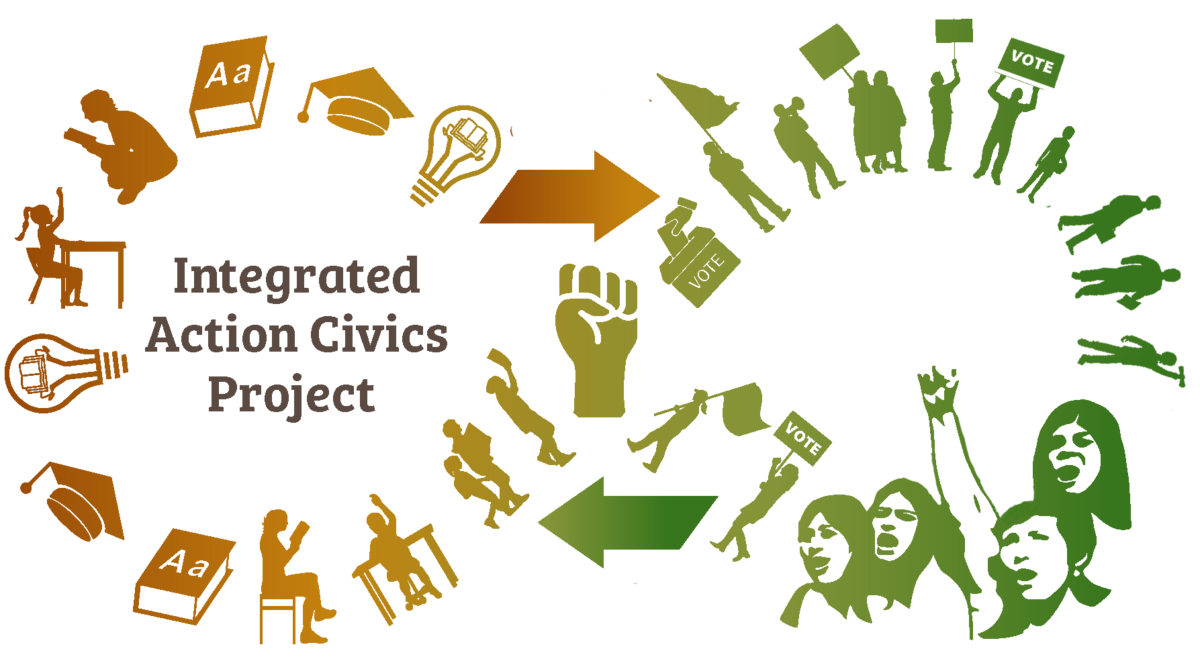UCBHSSP Key Initiatives

UC Berkeley History-Social Science Project helps educators support students ’ critical inquiry of the past by connecting with students’ contemporary world, their community and lived experiences. Through evidence-based inquiry, students construct their own narratives and explore how they may support, extend or challenge dominant narratives of history
UCBHSSP staff bring a combination of experience from K12 and university classrooms, pre-service education, and professional learning to our work with teachers. We work collaboratively with each other, members of the UC Berkeley Department of History, teacher leaders, and our colleagues on the UC Berkeley campus and sibling sites of the California History-Social Science Project.
This collection represents the main focus of our current work. Click on the links to learn more.
Ethnic Studies
Supporting the 50+ year effort to bring Ethnic Studies instruction to California and Beyond.
The 2019 adoption of AB101 legislation has made Ethnic Studies a graduation requirement course for California High Schools. As educators around the state develop or refine their course offerings, the UCBHSSP is to provide professional development opportunities for K-12 educators hoping to develop a deeper understanding of the field. Our support in Ethnic Studies emphasizes:
- The History and Foundations of Ethnic Studies
- California AB-101 and Ethnic Studies Curriculum
- Building Educator Capacity to teach Ethnic Studies
- Essential Theory, Concepts and Pedagogies
Integrated Action Civics Project
Empowering students to envision and work toward a better world
The Integrated Action Civics framework supports teachers in developing the understandings of civic engagement as foundational skills in students’ education. It offers concrete, classroom-tested strategies that:
- Connect course themes with the contemporary world.
- Introduce and apply change-analysis skills throughout the K-12 curriculum as new lenses in the study of history (e.g. analysis of power, stakeholders, strategies, and tactics of social change.)
- Empower students with skills of social and political change, to apply now or in the future, to shape their world. (Provides support for potential YPAR & other civic engagement projects.)
- Supports the State Seal of Civic Enngagement.
Reframing Modern World History Curriculum
Course Question: How do we get into right relationship with the planet and each other?
- This course seeks to teach Modern World History in a way that investigates the global origins and consequences of the industrial revolution and colonialism, and the resulting climate crisis we face today, while highlighting alternate visions for a sustainable and more just future. (See course map).
- This course could be taught in its entirety, or our set of 'anchor' lessons (at bottom of this page) could be used to help globalize a traditional course on world history.
Native History in the Bay Area
A useful launching place for educators who are working to center the history and contemporary work of local Tribal communities through their instruction
This page provides resources for teachers to understand settler colonialism and the ongoing history, presence, and organizing of Indigenous People with an emphasis on the Ohlone people in the Bay Area. There are articles for teachers as well as lessons and teaching materials. This page featueres:
- Bay Area Tribal Community Websites
- Curriculum and Teaching Resources
- Introductions to Settler Colonialism
- Reseources for Building Background Knowledge



